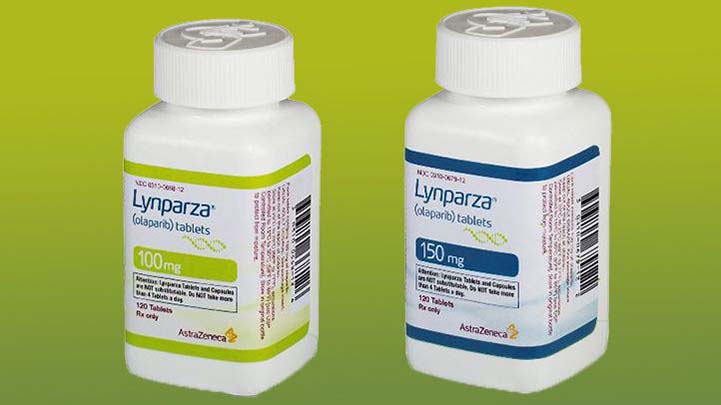

Buy Ninlaro (ixazomib) Online
$5,985.10
DISEASE INDICATIONS: Multiple Myeloma
MANUFACTURER: Takeda Pharma A/S
USAGE: Oral
MEDICINE APPROVED BY:
European Medical Agency (EMA)
Food and Drug Administration (FDA)
Health Canada
Pharmaceuticals and Medical Devices Agency (PMDA)
Therapeutic Goods Administration (TGA)
Ninlaro (ixazomib) is a medication used in combination with lenalidomide and dexamethasone to treat people with multiple myeloma who have undergone one to three previous lines of therapy.

Buy Ninlaro (ixazomib) Online
$5,985.10
- Description
- Additional information
- Reviews (0)
Description
What is Ninlaro (ixazomib) for?
Ninlaro (ixazomib) is a medication used to treat multiple myeloma, which is a type of cancer that affects the plasma cells. It is used in combination with other medications to treat people who have received at least one prior therapy for their multiple myeloma. Ninlaro is a proteasome inhibitor that works to decrease the production of abnormal proteins that contribute to the growth and survival of cancer cells. It is taken orally, typically once a week. The most common side effects of Ninlaro include nausea, diarrhea, constipation, vomiting, tiredness, weakness, and problematic low levels of platelets and white blood cells, which are vital for blood clotting and fighting infection, respectively.
How does Ninlaro (ixazomib) work?
Ninlaro (ixazomib) is a medication used to treat multiple myeloma. It is a proteasome inhibitor that works by blocking the activity of proteasomes, which are cellular structures that break down and recycle proteins in the body. In cancer cells, proteasomes are thought to play a crucial role in the production of abnormal proteins that contribute to cancer growth and survival. By blocking proteasome activity, Ninlaro helps to decrease the production of these abnormal proteins, leading to cancer cell death and slowing the growth of tumors. Ninlaro is typically prescribed in combination with other medications, such as dexamethasone and lenalidomide, to treat people who have received at least one prior therapy for their multiple myeloma.
How is Ninlaro (ixazomib) taken?
The recommended initial dose for ixazomib is 4 mg and should be taken orally on Days 1, 8, and 15 of a 28-day cycle. Patients with moderately or severely reduced liver function and those with severely reduced kidney function may require a reduced dose of 3 mg or 2.3 mg. It is recommended to take the treatment dose at least one hour before or two hours after food. For detailed information regarding ixazomib dosing and administration, refer to the references section. It is important to consult with your treating physician to determine the appropriate dosage of ixazomib for your condition.
Are there any known side effects of Ninlaro (ixazomib)?
Yes, there are known side effects associated with Ninlaro (ixazomib) that have been reported during clinical trials, and some of them can be severe. The most common side effects of ixazomib include:
– Diarrhea
– Nausea and vomiting
– Decreased appetite
– Fatigue
– Thrombocytopenia (low platelet count)
– Neutropenia (low white blood cell count)
– Peripheral neuropathy (nerve damage in the hands or feet)
– Rash
– Muscle weakness
– Upper respiratory tract infection
Less common, but more severe side effects may include:
– Cardiac disorders, such as heart failure and myocardial infarction (heart attack)
– Hepatotoxicity (liver damage)
– Pulmonary toxicity (lung damage)
– Gastrointestinal perforation (a hole or tear in the stomach or intestines)
If you experience any side effects or symptoms while taking ixazomib, it is important to inform your healthcare provider immediately. In some cases, the doctor may adjust the dosage or discontinue the medication altogether.
Clinical trials
A multicenter, randomized, double-blind, placebo-controlled trial involving 722 patients with multiple myeloma who had undergone 1 to 3 previous lines of therapy formed the basis for the approval, which was primarily based on an improvement in progression-free survival (PFS). Patients were randomly assigned in a 1:1 ratio to receive ixazomib, lenalidomide, and dexamethasone (n = 360) or placebo, lenalidomide, and dexamethasone (n = 362) and continued receiving treatment until they experienced disease progression or got unacceptable toxicity. The improved PFS with ixazomib, lenalidomide, and dexamethasone compared to placebo, lenalidomide, and dexamethasone was statistically significant. On the ixazomib, lenalidomide, and dexamethasone combination arm, the median PFS was 20.6 months (95% CI: 17.0, NE) compared to 14.7 months (95% CI: 12.9, 17.6) on the placebo, lenalidomide, and dexamethasone combination arm (PFS HR 0.74, 95% CI: 0.59, 0.94; p value=0.012).
The combination of ixazomib, lenalidomide, and dexamethasone can cause several common adverse effects (>20%) such as constipation, diarrhoea, nausea, peripheral edema, thrombocytopenia, vomiting, peripheral neuropathy, and back pain.
Additional information
| Package | 3 capsules of 2.3 mg, 3 capsules of 3 mg, 3 capsules of 4 mg |
|---|
Be the first to review “Buy Ninlaro (ixazomib) Online” Cancel reply
Related Products


Buy Onivyde (irinotecan hydrochloride trihydrate) Online
Total Sales: 0
SKU: 971124





Reviews
There are no reviews yet.